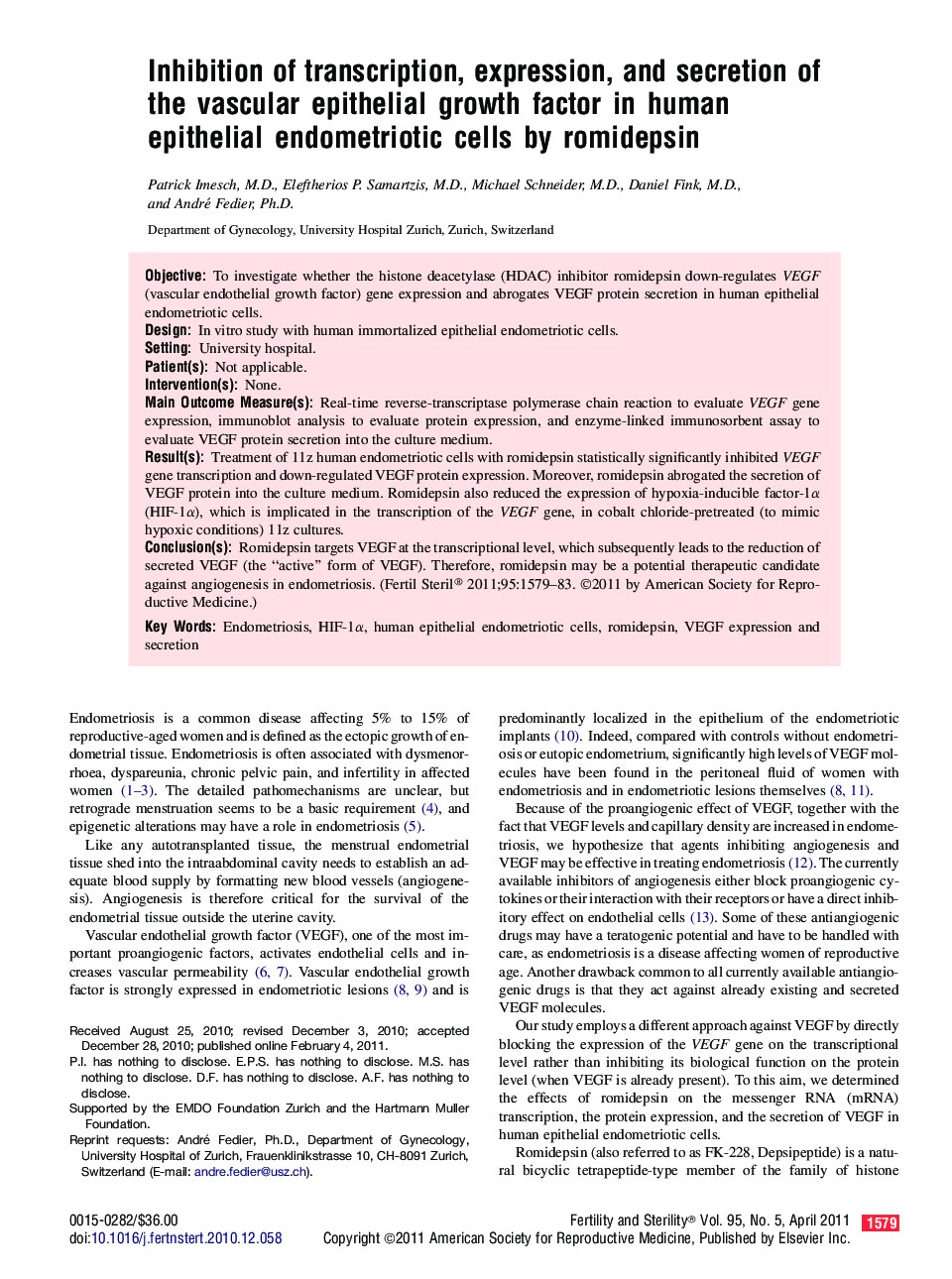| Article ID | Journal | Published Year | Pages | File Type |
|---|---|---|---|---|
| 3937923 | Fertility and Sterility | 2011 | 5 Pages |
ObjectiveTo investigate whether the histone deacetylase (HDAC) inhibitor romidepsin down-regulates VEGF (vascular endothelial growth factor) gene expression and abrogates VEGF protein secretion in human epithelial endometriotic cells.DesignIn vitro study with human immortalized epithelial endometriotic cells.SettingUniversity hospital.Patient(s)Not applicable.Intervention(s)None.Main Outcome Measure(s)Real-time reverse-transcriptase polymerase chain reaction to evaluate VEGF gene expression, immunoblot analysis to evaluate protein expression, and enzyme-linked immunosorbent assay to evaluate VEGF protein secretion into the culture medium.Result(s)Treatment of 11z human endometriotic cells with romidepsin statistically significantly inhibited VEGF gene transcription and down-regulated VEGF protein expression. Moreover, romidepsin abrogated the secretion of VEGF protein into the culture medium. Romidepsin also reduced the expression of hypoxia-inducible factor-1α (HIF-1α), which is implicated in the transcription of the VEGF gene, in cobalt chloride-pretreated (to mimic hypoxic conditions) 11z cultures.Conclusion(s)Romidepsin targets VEGF at the transcriptional level, which subsequently leads to the reduction of secreted VEGF (the “active” form of VEGF). Therefore, romidepsin may be a potential therapeutic candidate against angiogenesis in endometriosis.
